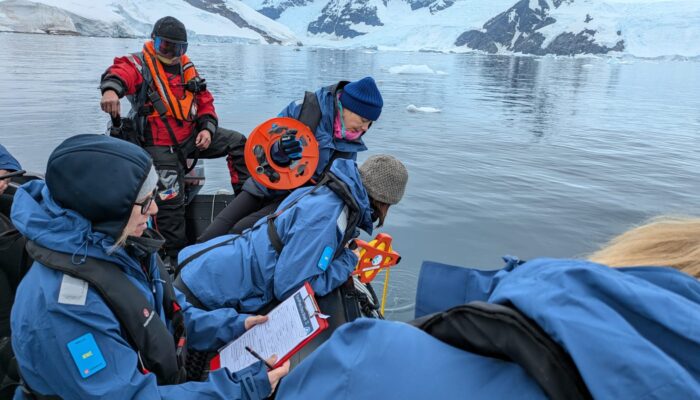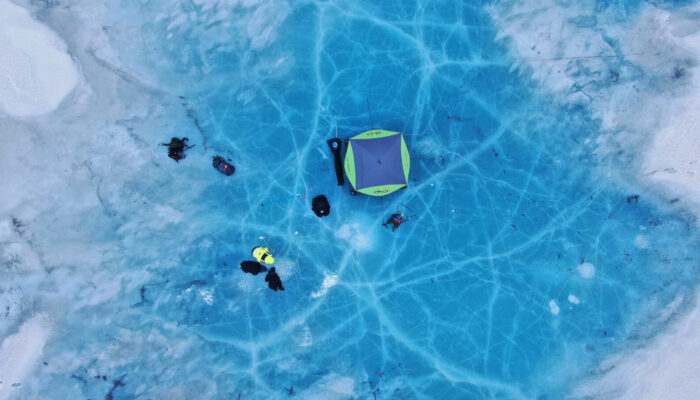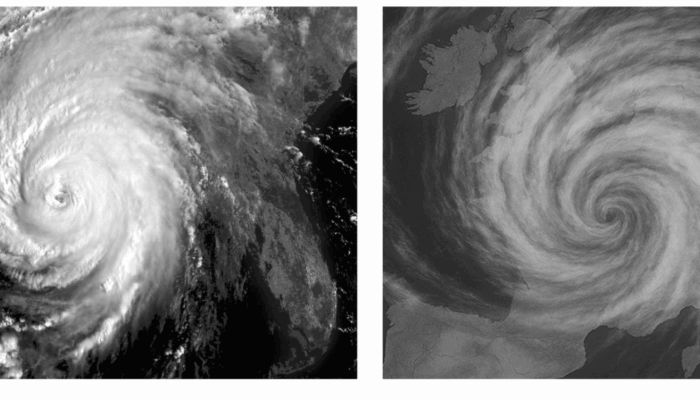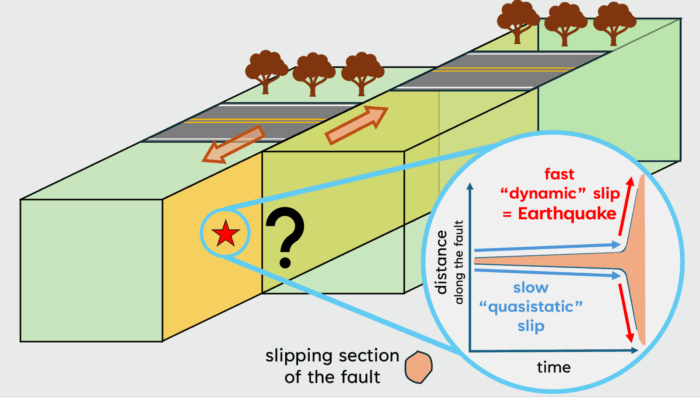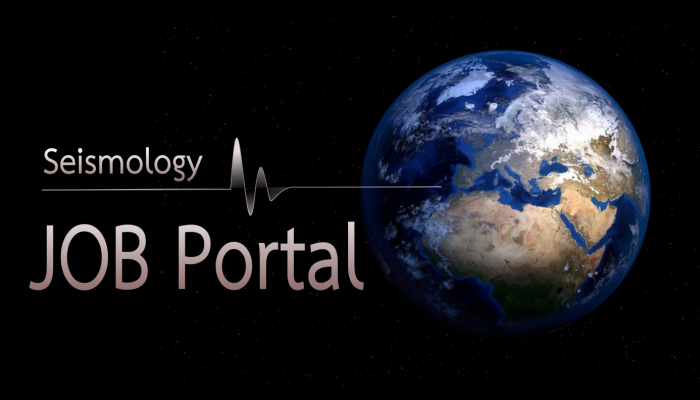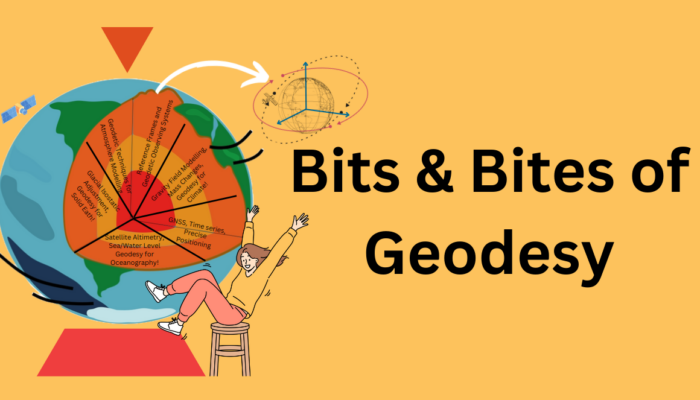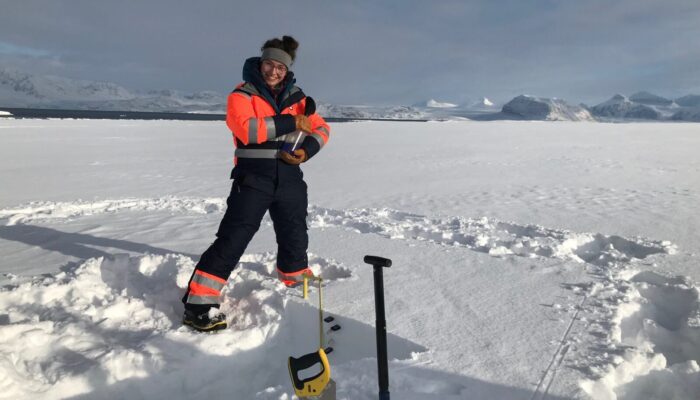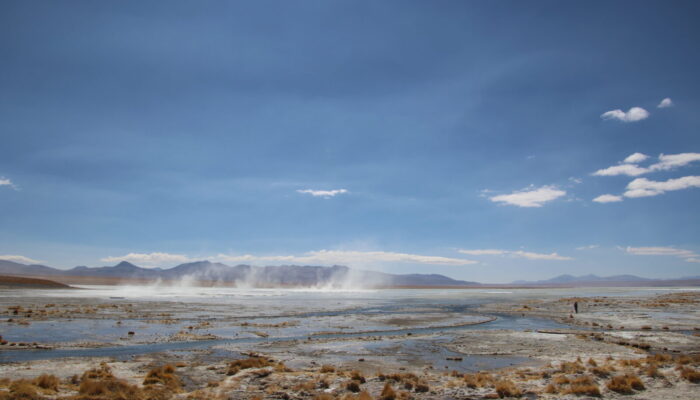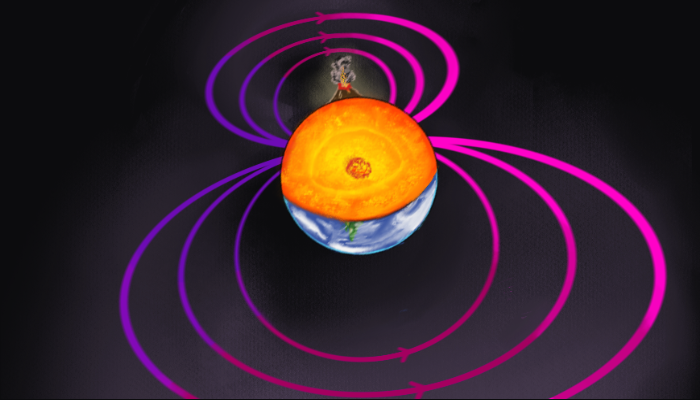Scientific work can be done not only by professional scientists but also by the general public, often in collaboration with scientific institutions. At HX Expeditions, citizens have the opportunity to contribute to scientific projects on expedition cruises. Join us as we hear from Holly Stainton, the Science & Education Coordinator at MS Roald Amundsen and HX Expeditions, about her experiences ...[Read More]
Cryospheric Sciences
The Proglacial Puzzle: Sampling of Glacier-fed Lakes in Greenland
Would you like to follow the endeavours of a small team working in the ice-marginal terrain in South-West Greenland? They set out to investigate proglacial lakes using sediment coring, water sampling and gas collections (figure 1), aiming to better understand methane dynamics, proglacial terrain development and the environmental drivers behind methane production in glacially influenced lake system ...[Read More]
Nonlinear Processes in Geosciences
AI-generated Images: the fragility of visual evidence in geosciences
Recently, an increased number of visually striking “scientific” images have been found online: snapshots of turbulent flows with dreamlike structure, eerily symmetric cloud patterns, and what appeared to be global temperature fields annotated with plausible colormaps and scientific-looking labels. Many of these posts quickly go viral on social media. And yet, in many cases, the images ...[Read More]
Geodynamics
Don’t Stop Me Now: A Fracture Mechanics Perspective on Earthquake Nucleation
How do earthquakes start? Earthquakes occur when a block of rock rapidly slides past another along an interface or a discontinuity in the medium and release energy in the form of seismic waves. Turns out, the surface of the earth is riddled with a lot of these discontinuities, which we call “faults”. If we plot the locations of earthquakes on a world map (Figure 1a), we will see that they highligh ...[Read More]
Geosciences Instrumentation and Data Systems
Advancing Geosciences: Innovation and Community in the GI Division
The Geosciences Instrumentation and Data Systems (GI) Division is one of the many divisions within the EGU. However, have you ever wondered what the GI division does? Our mission is to advance geoscientific research by promoting innovation, collaboration, and knowledge exchange in instrumentation, technology, and data systems across all geoscience disciplines. We are an interdisciplinary division, ...[Read More]
Seismology
Seismology Job & Career Portal
On this page, we regularly update open positions, workshops, schools or internships in Seismology for early career scientists. Do you have a job on offer? Would you like to advertise your workshop? Contact us at ecs-sm@egu.eu Please, note that other available research positions are displayed on the EGU Jobs Portal. We invite you to explore previous job posts, since some offers listed there may be ...[Read More]
Geodesy
Bits and Bites of Geodesy – From Wobble to Wander: Tracking Earth’s Shifting Rotation Axis
When we think of Earth’s rotation, it is tempting to imagine a perfectly smooth spin. But in reality, Earth’s rotation is irregular and dynamic, and is influenced by forces inside and outside of our planet. To describe the changing orientation of the Earth in space over time Earth Orientation Parameters (EOPs) are measured with fundamental geodetic measuring techniques, e.g., Very Long Baseline In ...[Read More]
Cryospheric Sciences
Cryosphere Caps: PhD hats and the researchers that wear them – Episode 4
This miniseries features the tradition of ‘PhD hat’ making in German research institutes and universities. For those of you unfamiliar with this idea (as I once was), this is one of the final milestones a graduate student has before they are officially a “Dr.”. Upon the successful defense of a thesis, the labmates of the PhD student craft a graduation hat from a mishmash of scrap cardboard and mem ...[Read More]
Hydrological Sciences
On finding my water temperature community
Walking the halls of the EGU General Assembly 2025 a few weeks ago, I was full of child-like curiosity. Being surrounded by people doing fascinating, creative, and innovative research felt like a dream come true. New faces every day, big talks on small advances and complicated methodologies. I learned about mountain ecology and failing snow-models, and I was captured by graphs and animations ̵ ...[Read More]
Geodynamics
Happy 8th blog birthday and introducing the new blog team!
Hello there! It’s Constanza and Michaël your GD editors-in-chief once again. End of June marks the 8th anniversary of the blog, so happy birthday to the blog! It’s been some pretty busy weeks of preparation behind the scenes after the EGU General Assembly to bring together the new blog team for the year 2025-2026. We are a team of early career scientists who are very enthusiastic about ...[Read More]

